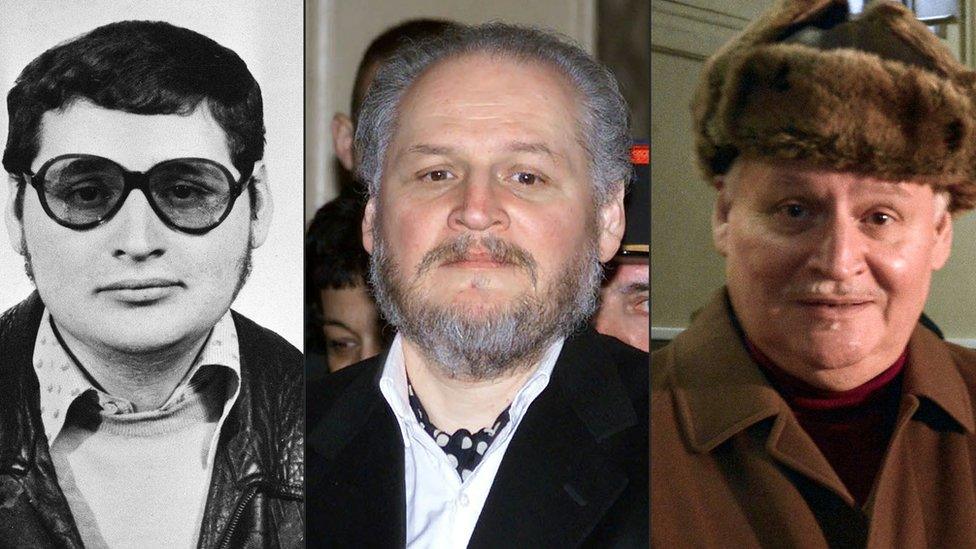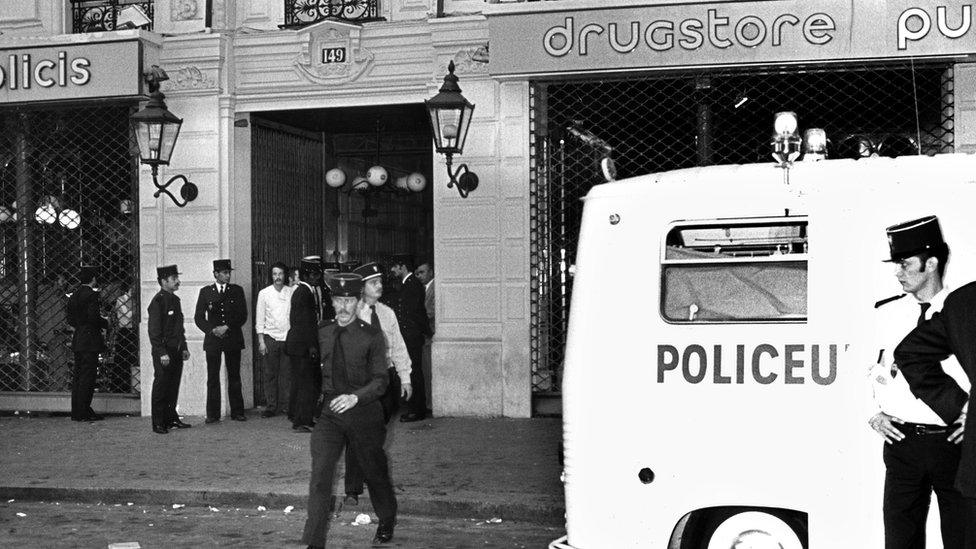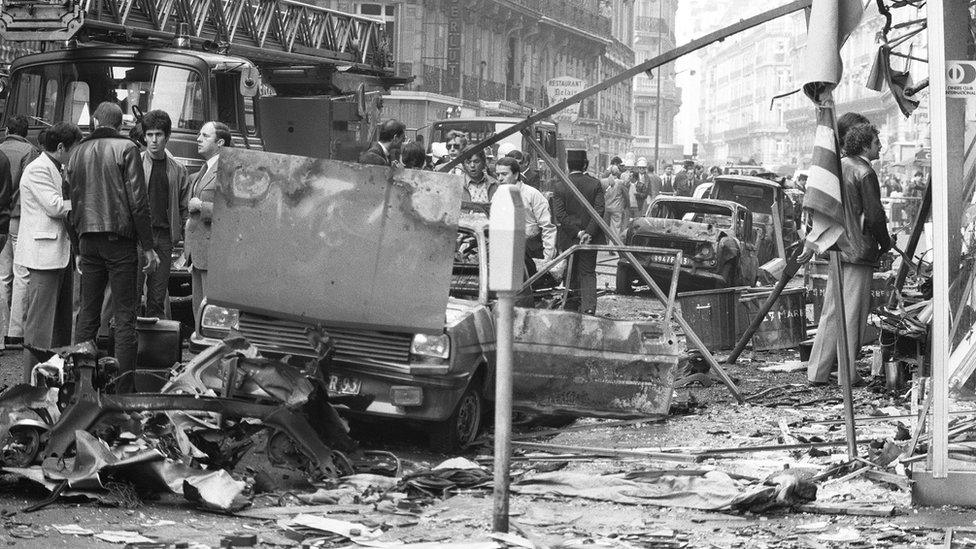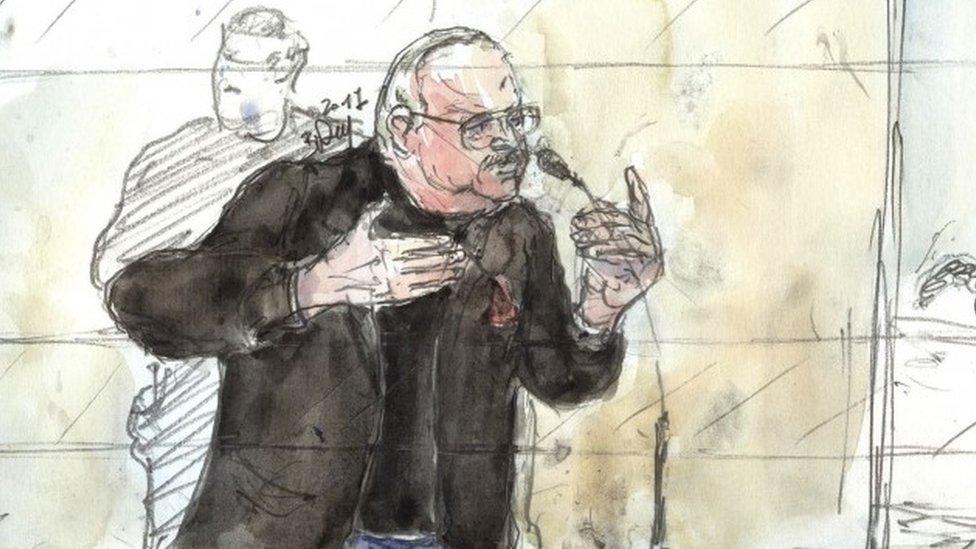Carlos the Jackal : Third French life sentence for notorious militant
- Published

Carlos the Jackal photographed in the early 1970s, in 2001 and in 2013
Carlos the Jackal, a notorious Venezuelan militant serving two life sentences, has been handed a third by a French court.
The self-styled revolutionary, whose real name is Ilich Ramirez Sanchez and is now 67, was convicted of a 1974 grenade attack on a Paris shop.
Ramirez threw a grenade into the shopping area, killing two and injuring 34 others, the court found.
He denied the charges and called the trial, 43 years later, "absurd".
Born into a wealthy Venezuelan family, Ramirez studied in Moscow before joining a militant group, the Popular Front for the Liberation of Palestine. He converted to Islam in 1975.
When his latest trial began in early March, he said that any killings he had committed had been carried out in the name of "the revolution" and condemned "scavenging" lawyers and "Zionist interests".
"No-one has executed more people than me in the Palestinian resistance," he said, "[and] I am the only survivor. In all the fighting, there were collateral victims, it's unfortunate."

The 1974 attack at Drugstore Publicis killed two people and injured 34
Prosecutor Remi Crosson du Cormier told the court that "all evidence" gathered in the investigation pointed to Ramirez.
He admitted that investigators had found no DNA, fingerprints or CCTV evidence from the grenade attack, AFP news agency reports.
French television news BFMTV quoted Ramirez as saying he was ready to appeal the verdict if he was convicted. He has ten days to do so, the report adds.
Who is Carlos the Jackal?
Once the world's most wanted fugitive, he was captured by elite French police in the Sudanese capital Khartoum in 1994.
By the time of his arrest, he had earned a reputation as a Marxist militant who had masterminded deadly bomb attacks, assassinations and hostage-takings.
Ramirez was dubbed Carlos the Jackal by the press, named after the fictional assassin in the 1971 Frederick Forsyth novel, The Day of the Jackal, which was turned into a popular film. A copy was found among his belongings.
Born in Venezuela, he was considered one of the most notorious political militants of the 1970s and 80s.
"Terrorists weren't even known then," Billy Waugh, a former CIA operative who tracked him down, told BBC radio. "Carlos was the man."
By the age of 24, he had joined the Popular Front for the Liberation of Palestine (PFLP) and began his training as a militant revolutionary.

The bombing of a newspaper office in Paris in 1982 injured dozens
A few years later, he launched his first attack - on Joseph Edward Sieff, the then president of the Marks and Spencer retail chain in London.
Mr Sieff, a prominent Jewish figure, survived a gunshot wound to the head.
The self-professed "professional revolutionary" has been found guilty of four bomb attacks:
In March 1982, a bomb exploded on a train between Paris and Toulouse, killing five people and wounding 28
A month later a car bomb attack was mounted on an anti-Syrian newspaper in Paris, with one passer-by killed and 60 injured
On New Year's Eve 1983, a bomb on a TGV fast train between Marseille and Paris killed three people and wounded 13
A bomb at a Marseille train station killed two
He was first convicted by a French court 20 years ago, and again in 2011 and 2013.
- Published13 March 2017
